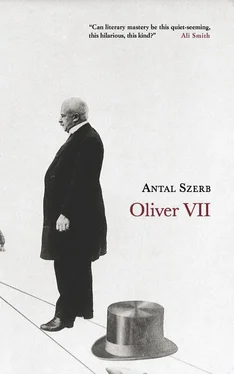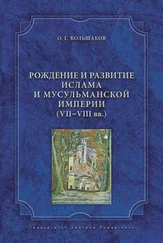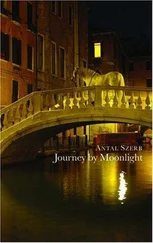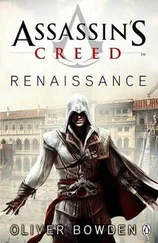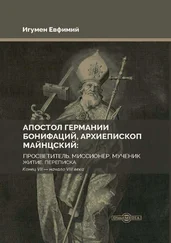Then he turned to the painter.
“My friend Oscar is a leading expert in the field of art. In his youth, if I am informed correctly, he was an errand boy in a large Parisian tailoring firm. He finds that the picture will do for our purposes. Of course it would be impossible to take him in — he saw immediately that it wasn’t a real Titian: at best, the work of a pupil. But this Mr Eisenstein, the simple-minded Yankee we’re dealing with, lacks the refinement to understand these things. My dear young friend, you may consider the picture as sold. Which, if I might set modesty aside, is no slight honour for you. If a St Germain buys a picture … What’s more, if certain very short-term considerations didn’t preclude, I’d pay you right now. However, I must ask you to be patient for a little while. You can be quite certain that your patience will be rewarded. Now, my friends, comes the conclusion of the business. Bring this shady American, this Mr Eisenstein, to me.”
“Excuse me, Count,” said Sandoval, “but the picture will need at least three days to dry.”
“No need, my young friend. In the possession of my illustrious family is a unique process for treating paintings. It must be applied to the canvas while still wet: it will give it a patina several centuries old, and dry it at the same time.”
Honoré and Oscar (as we must call our King, for the sake of brevity and a million other reasons) had over the past few days been progressively initiating Mr Eisenstein into the mystery of the painting. First, they revealed only that they had discovered some very interesting pictures in the palazzo of an impoverished old Marchese. Eisenstein showed an immediate interest, but was then told that the old man was very wary and would not allow foreigners into his home. For some time that seemed to be that. Then they brought news that they now suspected that one of the Marchese’s pictures was a real Titian. Next they claimed that certain experts had studied it, and finally they showed him a certificate drawn up by an eminent authority. (That revealed just how far St Germain’s contacts extended: in Italy anything was possible before the war.) Their handling of the situation made Eisenstein more and more excited, not least because not a word was mentioned of business. There was no talk of the picture being for sale; in fact, whenever he did show an interest of that sort they replied that they thought it unlikely that the old Marchese would allow it out of his collection. Then, very gradually, they consented to try and establish if the old chap would be willing to receive Eisenstein, so that he could at least view the masterpiece. The time finally agreed was that afternoon.
“My young friend,” the Count said to Sandoval, “I should like it very much if you were to be present at today’s memorable meeting. In your own interests, of course. Because when you next see me, as the proud but feeble-minded Italian grandee, it will be something rather special. And you can also help us sell the picture. You could chip in with the usual agreeably persuasive painterly art-historical mumbo jumbo. I like having people play the expert in all my ventures. It’s so much more stylish.”
Sandoval willingly agreed.
“All I would ask … ” St Germain continued, “ … is that, while in your role, you try to look like a reasonably elegant gentleman — shall we say, like an art dealer rather than a painter. The Eisensteins of this world don’t think of painters as looking like you, and we have to use whatever means are suited to the taste and level of understanding of our clients. If you will allow me, I shall make you up accordingly.”
When Sandoval returned to the palazzo that afternoon he was received by an elderly footman whom, after a moment’s hesitation, he recognised as the Major.
“Sometimes a man has to do strange things in the name of duty,” the Major said apologetically. “One day we’ll explain the secret reasons to you, and we won’t prove ungrateful for your loyalty. I shall now take you to meet the Marchese San Germano.”
The Marchese was in the great room on the ground floor, sunk in the depths of a large armchair: an alarmingly ancient being in a grey, threadbare jacket, with huge spectacles, mouthing aloud the words in an old book, with the help of a magnifying glass.
“Who’s that, Zacchinto?” he cried out as they entered. “You know perfectly well, my boy, we don’t like our afternoon siesta disturbed!” This was uttered in a wavering senile bleat.
“The painter is here, Eccellenza ,” the footman announced timidly.
“Ah, the painter … ah ah ah … oooh oooh oooh … yes, the painter, now I remember,” he bleated. Then, in his normal tones: “Come in, young man!” And he leapt up nimbly and led Sandoval into another room, where he fitted him out in a scarlet waistcoat, bow tie, and a baroque wig of somewhat doubtful cleanliness.
“Now I look like a painter of the last century,” Sandoval observed. “Isn’t that anachronistic?”
“In these matters, it does no harm to go a little over the top,” the Count insisted. “In our world it isn’t enough simply to say you’re a count. You have to wear a label on your neck and a nine-pointed crown with your title on it. It’s not enough for someone just to say you’re a king. You have to put a tin crown on your head. Our art is closely akin to the theatre.”
“Mr Eisenstein has arrived,” the elderly footman, alias Mawiras-Tendal, announced soon after.
Oscar and Honoré entered, elegantly attired, followed by a man and a woman. Sandoval studied both very thoroughly, particularly the woman.
She was the Mlle Marcelle of whose existence Sandoval had become aware when he eavesdropped on the conversation between the King and the Major.
“No arguing there,” he said to himself. “His Highness has excellent taste.”
Marcelle was a petite young woman, with a fine, piquant face and alluring figure, one of the type often called Parisian. Despite the fact that in Paris Sandoval had seen and known many women of this kind, Marcelle would still have exercised a special charm on him; but here, in this very different environment, she had a pleasantly refreshing effect, and he could imagine that she would be quite a new experience for the King, who, unlike himself, had not spent years in Paris. In her dress, and in the way she moved, there was something just a little coquettish.
“It seems St Germain was right,” he said to himself. “In the world of the trickster you only believe it’s a woman if her face is made up. Actually, if I had to choose between the two, I’d go for Princess Ortrud without a second thought. But then, I’m not a king.”
Mr Eisenstein was just the sort of person you might imagine from his name: a stout, slovenly man with a large chin and nose, and a wide, sarcastic, self-satisfied grin, perhaps the permanent defence of a naive individual against the world.
“Marchese,” Honoré began, in his rather weak Italian, “do pardon us for disturbing your rest.”
“Not at all, my boy,” St Germain bleated in reply. “Not at all. I’ll carry on resting while you’re here. It’ll be just as if you weren’t. I love young people. Youth … ” he continued, with a dreamy, idiotic smile on his face. “Just come and go, make yourselves at home, just as you like.”
“And permit me to introduce this gentleman from America, Mr Eisenstein, a great friend of Italy and of painting.”
“Aw, yes,” said Eisenstein.
“Interesting point, that,” bleated the Marchese. “I’ve always thought so myself. Not that I do much thinking these days. Haven’t for some time. Zacchinto, serve some refreshments. Make yourselves at home, everyone. Make yourselves at home.”
“Our visitor is very interested in pictures,” said Oscar.
Читать дальше
